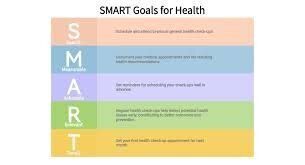Smart Personal Health Advisories
The integration of Artificial Intelligence (AI) in personal health monitoring is revolutionizing how individuals receive health advice and reminders based on data collected from Internet of Things (IoT) devices. This innovative approach leverages various connected health monitors, including health apps and wearable devices, to provide personalized health insights.
AI-Driven Health Insights
AI algorithms analyze vast amounts of health data collected from devices such as smartwatches, fitness trackers, and health monitoring apps. These algorithms can detect patterns and anomalies in health metrics like heart rate, sleep quality, and physical activity levels. By identifying these trends, AI can offer tailored health advice, enabling users to make informed decisions about their health and lifestyle. For instance, if a wearable device detects irregular heart rhythms, the AI can alert the user and suggest a consultation with a healthcare provider, thereby facilitating early intervention[1][4].
Personalized Reminders and Alerts
Connected health devices can also enhance medication adherence by sending reminders to users when it’s time to take their medications. This feature is particularly beneficial for individuals managing chronic conditions who require strict adherence to medication schedules. The AI can track adherence patterns and provide feedback, helping users stay on track with their treatment plans[2][4].
Remote Monitoring and Preventive Care
AI-powered health monitors enable remote patient monitoring, allowing healthcare providers to track patients’ health data in real time. This capability not only reduces the need for frequent hospital visits but also allows for timely adjustments to treatment plans based on the patient’s current health status. By continuously analyzing data, AI can predict potential health issues before they escalate, promoting a preventive approach to healthcare[1][4].
Challenges and Considerations
Despite the numerous benefits, the use of AI in personal health monitoring raises significant challenges, particularly concerning data privacy and security. As these devices collect sensitive health information, robust security measures must be implemented to protect against unauthorized access and data breaches. Additionally, the accuracy and reliability of AI algorithms are crucial; ongoing validation and testing are necessary to ensure that these systems provide trustworthy health insights[2][4].
Conclusion
The convergence of AI and IoT in personal health monitoring represents a significant advancement in healthcare technology. By providing personalized health advice and reminders based on real-time data, these systems empower individuals to take control of their health, leading to better health outcomes and enhanced quality of life. As technology continues to evolve, the potential for AI-driven health advisories will only expand, paving the way for a more proactive and personalized approach to healthcare.
Further Reading
1. The Emergence of AI-Based Wearable Sensors for Digital Health Technology: A Review – PMC
2. “Future Trends in Medical Alerts: AI, Wearables & Health Tech
3. https://www.sciencedirect.com/science/article/pii/S2352914822000545
4. The Integration Of AI In Smart Personal Health Monitoring – Ask AI Space
5. About SMART – SMART Health IT


